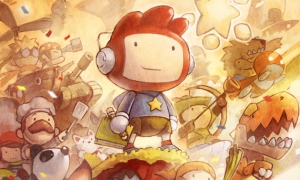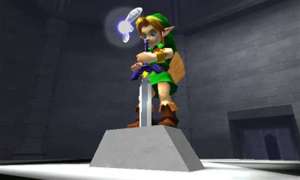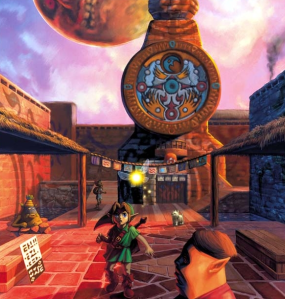 I’ve been writing video game reviews for over two years now, and there’s been some things I’ve learned over that span of time. I don’t mean better writing techniques, for which I’ve picked up quite a few, but rather the things you don’t think about until they rear their head. Since not everyone has written reviews before, I wanted to take some time to reflect on my time spent writing, and give some insight on what it takes to be a freelance video game reviewer.
I’ve been writing video game reviews for over two years now, and there’s been some things I’ve learned over that span of time. I don’t mean better writing techniques, for which I’ve picked up quite a few, but rather the things you don’t think about until they rear their head. Since not everyone has written reviews before, I wanted to take some time to reflect on my time spent writing, and give some insight on what it takes to be a freelance video game reviewer.
1.) You don’t always get to review games you want. Oftentimes you have to review a game you’d otherwise never play
Perhaps this one goes without saying, but being a game reviewer isn’t about playing the greatest games out there. In my writing career at Machinima.com, I can only think of a handful of triple A titles I’ve had the luxury to play and write about (Borderlands, Dragon Age: Origins, Darksiders, and LoZ: Ocarina of Time 3D come to mind first). But for every awesome titles you get to review, there are PLENTY of not-so-stellar games you’ve got to trudge through. Some of these games aren’t bad, and are in fact quite pleasant to play (see Radiant Historia and Orcs Must Die!), but others are games I would never have been caught otherwise playing (like TrackMania 2: Canyon or Microbot). So bottom line here is this: Reviewing games becomes something you have to do, and not something you just did for fun. Mixing work with pleasure isn’t always as satisfying as it sounds.

2.) People will always find criticisms in your work. Always. And that’s just the way things go
It’s just a fact of writing. No matter what you say about a game, someone will always disagree with you. And I’m not saying the editors: they should (if they’re good, which mine are) provide you with non-biased feedback. What I’m talking about are the things folks talk about in the comments. It’s something that comes with being a critic, and it is intrinsic in the nature of a critic. If I like something (such as the amount of recognizable words in Super Scribblenauts), then there’s someone who thinks it’s limiting. If I didn’t enjoy an aspect of the game (like the difficulty in BloodRayne: Betrayal), there will be someone who thought it was perfect. Accepting criticism, getting better from it, and moving on to create even better reviews in the future is what you have to do to get better.

3.) Writing for a Metacritic site should have no bearing on your thoughts of the game
I am speaking about this after I got more than a few negative comments about my review of the game Dungeon Defenders. Criticisms and issues aside, one thing I gathered from this experience was that writing for Metacritic should have absolutely no impact on your thoughts of the game. It is in the nature of Metacritic stay thoughtful and opinionated. Altering your words to take into consideration what other reviewers are saying is downright silly: if I am supposed to consider what someone else wrote about the game and adjust the game’s score accordingly, then every game review should be the exact same, and therefore negate the necessity of Metacritic itself. So what I want to convey here is to always speak your mind and speak the truth for a game: if you didn’t like it, express those feelings. That’s why there are game critics: to inform readers about the likes, dislikes, and everything in between for each game.

4.) Saying the same things over and over is rather difficult
It’s easy to get into a rut when writing several reviews over time. Honestly, how many different ways can you say, “The soundtrack stands out as a mix of ambient techno and electronic tunes.” (Mercury Hg). Seriously though, it’s tough! “Outland’s soundtrack is a good mix of heavy bass and tribal themes.” (Outland). Ultimately these are saying the same things, namely that the game has a good soundtrack. Part of the fun (and assuredly the challenge) is finding creative means to demonstrate your reflection on aspects of the games. You might be thinking this is easy-peasy, but you’d be in for a shock once you get around to your 20th review and can’t think of a synonym for “sound.”
5.) Putting your critic hat on and looking at a game from a different angle
One of my editors gave me the above quote, and he couldn’t have been more right. In order to be an effective critic you can’t be blinded by your initial excitement for a new video game. Anyone can write that a game is awesome for x, y, and z reasons, but it takes time and careful concentration to point out the qualities (both good and bad) about a title. How did the game control? Were these controls complicated? What if someone had never played a similar game before playing this one? What if I want to change the controls? How about different control setups altogether? Did the game ever give any control hiccups? I could be giving a somewhat hyperbolic situation, but I think it’s appropriate. As a reviewer you can’t simply state what the game does right and wrong, but why those things are right and wrong, good and bad, fun and boring.

6.) Game reviews need to do away with the numbering system
What I mean by this is that readers need to understand the numbering system before making a judgment on the game. How many times (and I’m guilty of this too) have you wondered how a game was, looked up a review, say the number or letter grade a reviewer gave it, and judged the game from there, without ever reading a word about the quality of the game? Numbers are easy to understand: high numbers are good, low numbers are bad. But the reason I say they should be done away with is because there appears to be a double standard when it comes to review scores. Games can get unreal praise and get meta scores in the upper 90s, which is undoubtedly a great title. But then a game can get decent accolades, and receive scores in the 70s and be shunned for being poorer quality. These games aren’t bad by any means, they just didn’t score as high as another game, but they should still be considered achievements in gaming. On the 100 point system something below 50 is worth heavily criticizing for being poor, not a game in the 70s. If readers would take the time to read the words someone dearly wrote about a title, they’d have a much better understanding of the game and the justification for the score given.
7.) Game reviewing is time consuming
Some games can be plowed through in a matter of hours (like Trouble Witches Neo), but others can take countless hours to complete entirely (such as Tactics Ogre: Let Us Cling Together). Length of time to complete a game isn’t a big deal, but think about it: if someone’s reviewing RPG after RPG, they’re spending hours playing a single game. I think the longest game it took me to complete was Dragon Quest IX which took something like 50+ hours to complete. And then there’s games that downright suck that you’ve got to review which can seem like forever, as was the case for the awful PS3 exclusive Last Rebellion. While gaming is a good hobby to pass the time, actually having to play a game under time constraints gets overwhelming.

8.) The ones you remember…
This isn’t really something you learn from writing, rather it’s a personal log you inevitably keep on the games you write about. Everyone will have a favorite game, worst game, coolest game, etc, so here are mine.
Favorite game reviewed: The Legend of Zelda: Ocarina of Time 3D
Least favorite game reviewed: Last Rebellion
Most surprising game: Raskulls
Game I’m still playing: Borderlands
Most unlikely game reviewed: TrackMania 2: Canyon (I don’t play too many racing games…)
Most common genre reviewed: RPG – 42 out of 70+ and counting
Most common system used: Xbox 360 – 23
Speak up and let me know what you all have picked up from being a game reviewer, or from simply playing and enjoying games!
Laters,
Jsick





